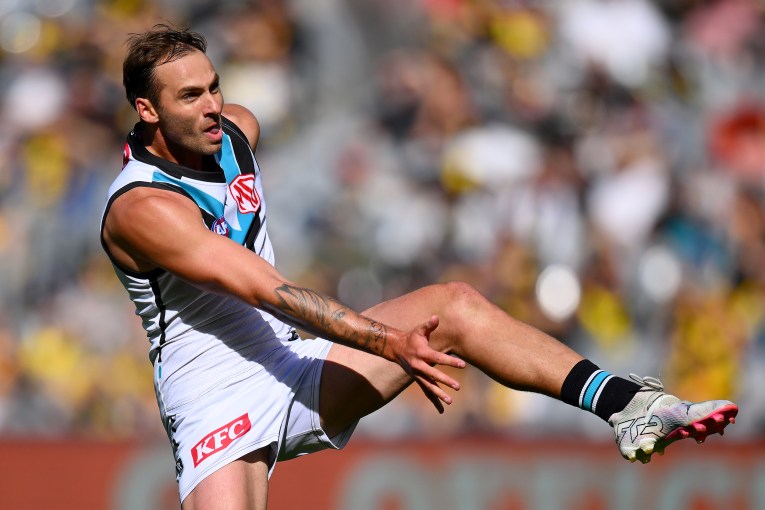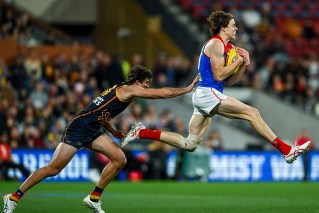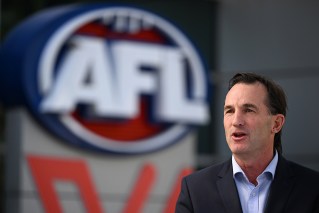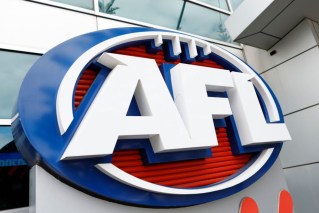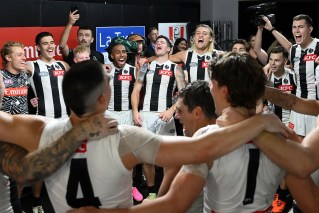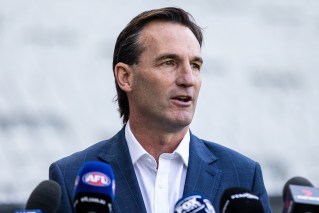Move with the times: AFL needs an order-off rule

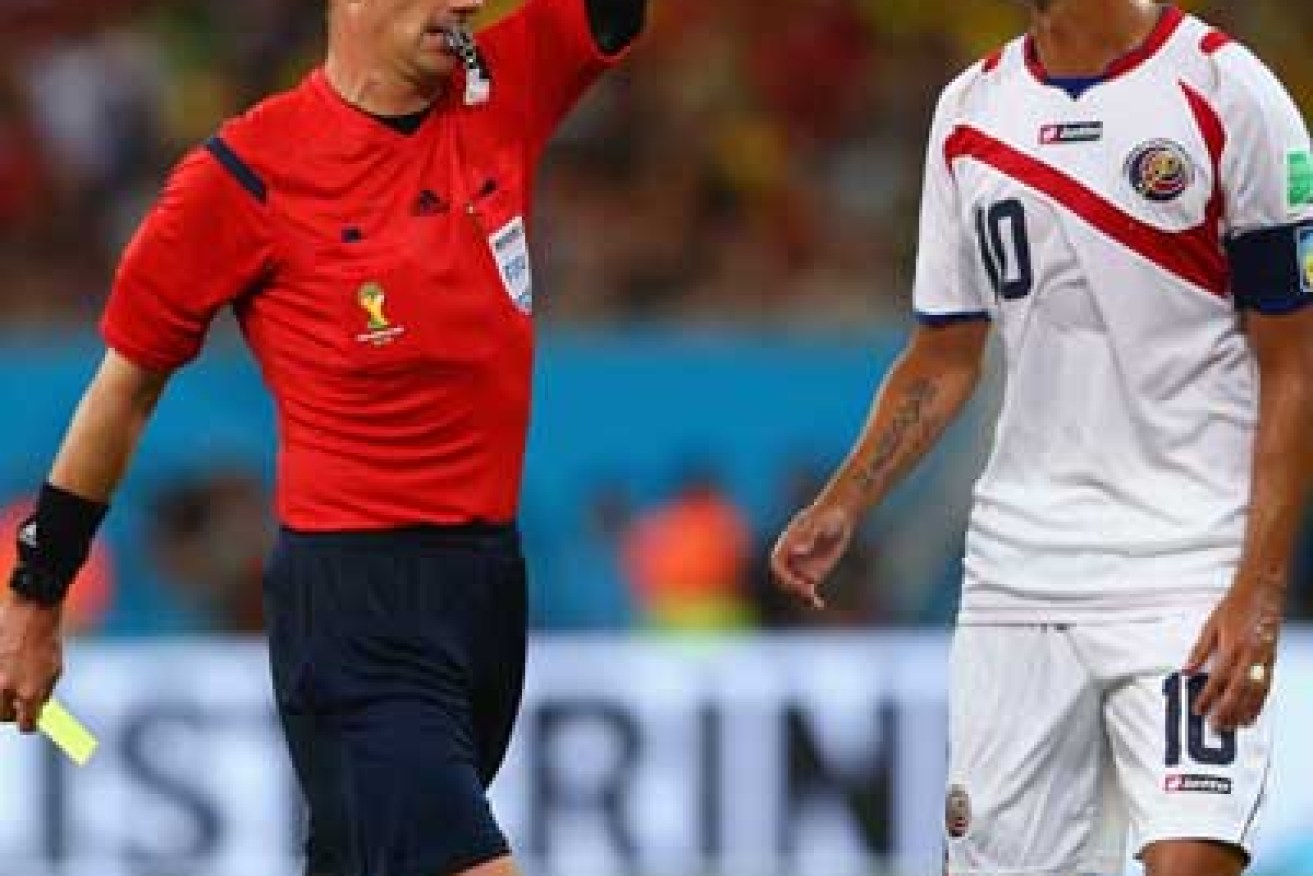
Getty
In May of last year’s AFL season, Brisbane Lions full-back and serial offender, Daniel Merrett, rag-dolled his Essendon opponent Michael Hurley, slinging him across the boundary line during the first quarter of their game at Etihad Stadium. Hurley’s head hit the surface with a sickening thud so forceful that I swear I could hear it from the opposite side of the ground.
A heavily concussed Hurley, who had to be helped to his feet before being helped from the ground, took no further part in the match. It was a God-awful, game-defining moment.

Michael Hurley after being slung to the ground by Daniel Merrett. Photo: Getty
The Lions went on to win the match by 10 points. Watching from the stands, I had no doubt that Hurley’s absence had cost Essendon an important victory. Incredibly, Merrett wasn’t reported at the time of the incident; thankfully, the match review panel rubbed him out for three weeks on the following Monday for a dangerous sling tackle.
• An open letter to AFL umpires: Get on the ball
• Lindsay, let’s talk about diving
Not for the first time, I wondered what sort of sport allows one player to be taken out of the play by an illegal act and the perpetrator to play on to his side’s advantage?
Not soccer, not either form of rugby, not even basketball or hockey. But AFL football? Play on Mr Merrett, even though you’ve just illegally given your side an enormous, game-winning break.
It would be designed to redress imbalances, not create them. That’s the important difference between this approach and that adopted by most other codes.
Fast forward now to the recent West Coast Eagles/Richmond clash at Subiaco. The Tigers’ Tyrone Vickery fells the Eagles’ Dean Cox with a round-arm right that leaves the big man heaving unconsciously on the Paterson’s Stadium surface.
Like Hurley 12 months before him, Cox has to be helped from the ground. Again, like Hurley, the big man never returns to the fray. Richmond win in a canter. Why wouldn’t they? After all, the Eagles have lost one of their key playmakers. Vickery plays on, seeing out the match, even though he would later incur a four-match ban at the hands of the AFL tribunal.
As a football fan over many decades I’ve always resisted calls for order-off rules that, with the exception of cricket, apply to pretty much every other sport. I’ve always thought the potential for umpires to make the wrong call made it more trouble than it might be worth. But the Hurley and Cox incidents have led me to change my mind.
Of course, umpires sometime miss things, so I’d employ video replays of incidents – let’s face it, broadcasters love to replay shocking injuries over and over – to gauge if someone has been taken out of the game illegally.

Costa Rica’s Oscar Duarte gets his marching orders during the World Cup. Photo: Getty
While I’m prepared to accept the Vickery hit on Cox wasn’t pre-meditated and the Merrett sling tackle probably wasn’t either, both players and their teams should have paid a price then and there for their illegal conduct. Frankly, it’s too late to penalise them days later, although that should happen too.
The game should have a restricted order-off rule that would see any player who injures an opponent removed from the field for the same length of time as that opponent. That could be as little as the 20 minutes it takes for the player to return after a concussion test or for the remainder of the match if they never come back on.
And it would only apply for an illegal act that sends a player from the field. It wouldn’t apply if an opponent was hurt, but played on. It would be designed to redress imbalances, not create them. That’s the important difference between this approach and that adopted by most other codes.
Of course, umpires sometime miss things, so I’d employ video replays of incidents – let’s face it, broadcasters love to replay shocking injuries over and over – to gauge if someone has been taken out of the game illegally. That could be at the discretion of the captain of the team who lost a player, perhaps at the end of the relevant quarter and only if the injured player won’t be returning.
If the rule had been applied in last year’s Merrett-Hurley incident and this year’s Vickery-Cox incident, both teams would have had to finish the game one man short. Who knows, it may have changed the results.
Certainly the outcomes would have been fairer – it would have levelled the playing fields that both men fell to so violently.
